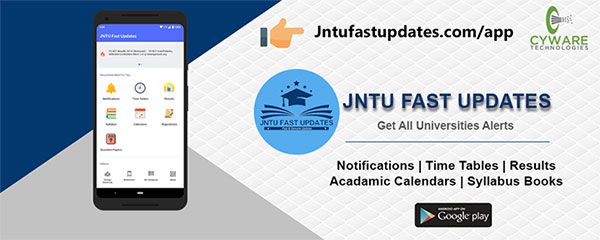JNTUK R20 1-2 Mathematics – II Material PDF Download
Students those who are studying JNTUK R20 CIVIL, CSE, ECE, MECH Branches, Can Download Unit wise R20 1-2 Mathematics – II (Linear Algebra And Numerical Methods-M2) Material/Notes PDFs below.

JNTUK R20 1-2 Mathematics – II Material PDF Download
OBJECTIVES:
- To instruct the concept of Matrices in solving linear algebraic equations
- To elucidate the different numerical methods to solve nonlinear algebraic equations
- To disseminate the use of different numerical techniques for carrying out numerical integration.
- To equip the students with standard concepts and tools at an intermediate to advanced level mathematics to develop the confidence and ability among the students to handle various real world problems and their applications.
UNIT-1
Solving systems of linear equations, Eigen values and Eigen vectors: Rank of a matrix by echelon form and normal form – Solving system of homogeneous and nonhomogeneous linear equations – Gauss Elimination method – Eigen values and Eigen vectors and properties (article-2.14 in text book-1).
Unit-2:
Cayley–Hamilton theorem and Quadratic forms: Cayley-Hamilton theorem (without proof) – Applications – Finding the inverse and power of a matrix by Cayley-Hamilton theorem – Reduction to Diagonal form – Quadratic forms and nature of the quadratic forms – Reduction of quadratic form to canonical forms by orthogonal transformation. Singular values of a matrix, singular value decomposition (text book-3).
UNIT-3:
Iterative methods: Introduction– Bisection method–Secant method – Method of false position– Iteration method – Newton-Raphson method (One variable and simultaneous equations) – Jacobi and Gauss-Seidel methods for solving system of equations numerically.
UNIT-4:
Interpolation: Introduction– Errors in polynomial interpolation – Finite differences– Forward differences– Backward differences –Central differences – Relations between operators – Newton’s forward and backward formulae for interpolation – Interpolation with unequal intervals – Lagrange’s interpolation formula– Newton’s divide difference formula.
UNIT-5:
Numerical differentiation and integration, Solution of ordinary differential equations with initial conditions: Numerical differentiation using interpolating polynomial – Trapezoidal rule– Simpson’s 1/3rd and 3/8th rule– Solution of initial value problems by Taylor’s series– Picard’s method of successive approximations– Euler’s method – Runge-Kutta method (second and fourth order).
TEXT BOOKS:
- B. S. Grewal, Higher Engineering Mathematics, 44th Edition, Khanna Publishers, 2018
- B. V. Ramana, Higher Engineering Mathematics, 6 th Edition, Tata McGraw Hill Education, 2007
- David Poole, Linear Algebra- A modern introduction, 4th Edition, Cengage, 2015
REFERENCE BOOKS:
- Steven C. Chapra, Applied Numerical Methods with MATLAB for Engineering and Science, Tata McGraw Hill Education, 4th Edition, 2018
- M. K. Jain, S.R.K. Iyengar and R.K. Jain, Numerical Methods for Scientific and Engineering Computation, New Age International Publications, 3rd Edition, 2020.
- Lawrence Turyn, Advanced Engineering Mathematics, CRC Press, 1st Edition 2014.
OUTCOMES:
- develop the use of matrix algebra techniques that is needed by engineers for practical applications (L6)
- solve system of linear algebraic equations using Gauss elimination, Gauss Jordan, Gauss Seidel (L3)
- evaluate the approximate roots of polynomial and transcendental equations by different algorithms (L5)
- apply Newton’s forward & backward interpolation and Lagrange’s formulae for equal and unequal intervals (L3)
- apply numerical integral techniques to different Engineering problems (L3)
- apply different algorithms for approximating the solutions of ordinary differential equations with initial conditions to its analytical computations (L3)


320-x100(1).gif)

M2 only important questions and answers kavali plz
M2 materials
plkzz send me
I want m2 unit 1 pdf
PDFs order lo lavuu
upload materials
materials upload cheyandi samiii